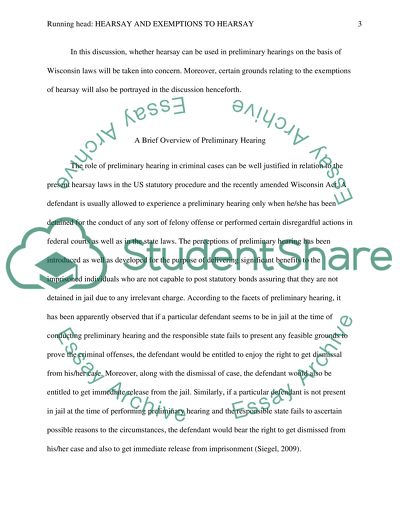Cite this document
(“Hearsay and exemptions to hearsay Research Paper”, n.d.)
Hearsay and exemptions to hearsay Research Paper. Retrieved from https://studentshare.org/law/1401716-hearsay-and-exemptions-to-hearsay
Hearsay and exemptions to hearsay Research Paper. Retrieved from https://studentshare.org/law/1401716-hearsay-and-exemptions-to-hearsay
(Hearsay and Exemptions to Hearsay Research Paper)
Hearsay and Exemptions to Hearsay Research Paper. https://studentshare.org/law/1401716-hearsay-and-exemptions-to-hearsay.
Hearsay and Exemptions to Hearsay Research Paper. https://studentshare.org/law/1401716-hearsay-and-exemptions-to-hearsay.
“Hearsay and Exemptions to Hearsay Research Paper”, n.d. https://studentshare.org/law/1401716-hearsay-and-exemptions-to-hearsay.


